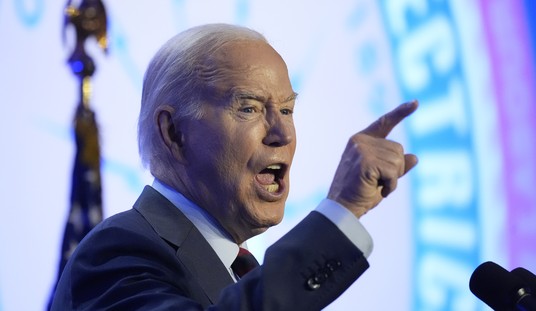What if virtually every variety of debt security were still overvalued? What if, to put it another way, the aggregate demand for debt securities had fallen off dramatically and never returned to its pre-crisis state? What if virtually every imaginable mechanism of accounting legerdemain, every method of budgetary chicanery, every generous wink-and-nod easement, every facility of subtle support for usury, had been employed in the effort to prevent the pain of that massive loss in demand from being felt?
Back up a step. What if, right alongside an unprecedented rhetorical and regulatory onslaught on business enterprise, we were living under an unprecedented coddling of finance capitalism?
Well, these are tough questions that I do not propose to answer with any finality. But I do think that, at the highest levels of financial sophistication, the global political economy is still in such a state of flux and disorder that any statement pretending toward finality ought to be treated with the utmost skepticism. Thus I do think that we must strive by all the means of our appointment, to realize that the political economies of the world are still adrift in uncharted seas. Uncertainty still reigns supreme; and we all must be ready to observe and record facts that may well disturb our prior certainties. We have to keep these sorts of questions open, and maintain a hardly skepticism of that ideological frame of mind which would close them prematurely.
Consider the absolutely extraordinary reversal in the political-economic dynamics between the US and Europe. To me is a truly staggering feature of the last six months. Something has really put the scare in European leaders; to the extent that real honest-to-goodness fiscal austerity, far from being merely proposed in oratory, or recommended by wonky financiers, is actually being implemented, right in the teeth of the usual union-led demonstrations. Meanwhile, the US has only gotten as far as a few lower-level pols and former pols throwing out some austerity-like ideas. On the American Right, the newest hotshot — a paunchy and pugnacious Governor of New Jersey — is only just now pressing openly (and then only at the state level) for the kind of policies that European leaders like David Cameron and Angela Merkel have started to implement at the national level. Then there is the old union-friendly paleo-Left in America, those aging social democrats of Marxian cast: these guys have spent their entire careers praising European redistributionist politics, and now the poor fellows find themselves driven by events to curse and harangue the same.
I hasten to add that for myself, at least, the question of whether fiscal austerity is wise — whether current European policies are the best ones — ones that we should emulate — is a question I’m going to resolutely keep open. I’m happy to let the Europeans run this experiment first.
It’s possible that austerity will prove both wise and necessary (it will never, I am convinced, prove popular, despite the populist agitation that appears to support it). But it is also possible that it will prove a craven capitulation to usurers and plutocrats. Today European officials, as reported by the Financial Times, had to come out and reassure bond investors that any “haircut” on their investments in public debt securities will be purely “voluntary.” Why this particular class of investors and speculators should receive an indirect promise to be made whole is not altogether clear to me. And one cannot fail to detect the note of blackmail in it: “make us whole on our unwise investments or we will sink your pitiful economies.”
Haircuts of a different sort, meanwhile, are contemplated for the middle classes of the West. In Europe (since so many of the middle classes are public sector workers) it will come in the form of benefits, salary and job-security reductions; while in America it may well take the form of new taxes. The US deficit commission has floated the idea of removing the mortgage interest deduction, which would frankly be a punch in the gut to millions of middle class Americans.
So the question naturally arises, why in the hell should the bond financiers be coddled with comical “voluntary” haircuts, while middle class folks are forced to eat the bitter gruel of more straitened conditions? (For one thing, there is this complication: in many cases they are the same people. In other words, a good chunk of Western middle classes consists of folks on fixed incomes — pensions, retirement funds, etc. — derived precisely from … securities markets, and especially from bond security yields.)
As I say, we face some really tough questions; and I’m suspicious of anyone who thinks he’s got the ready answers. But the one proposition I am fairly confident about is that it is high time we acknowledged (and this goes especially for people on the Right) that business enterprise and finance capitalism are not the same thing. Perhaps the simplest way to describe the difference is to say that if you’re in business enterprise, you’re exposed to very high risk of failure and bankruptcy, while if you’re in finance capitalism, you’re protected from such risks by means of an astonishing proliferation of machinations and arcane subtleties. This would explain, in part, the rush of big industrial firms over the past few decades to get into securities markets. From AIG to GE to Walmart, many years it redounded to the corporation’s benefit to become a major player in some particular niche of securities trading: that is the path to the promised land of Too Big to Fail.
If, being a big bank, you deal directly with the Federal Reserve (or any other monetary authority) there is a good chance that, in a pinch, you can cheerfully sell government securities for new currency that didn’t exist before the sale. In other words, you can sell a stagnant or highly volatile security and get newly-created money in return. That this operation is given a puzzling piece of jargon as its name — quantitative easing — and is undertaken with apparently genuine assurances that it will help the broader economy too, in no way alters how nice a deal it is for the primary dealers.
When you add this in with all the other sweet deals extended to banks since the crisis of 2007-08, you start to realize that maybe the banks couldn’t survive at all without sweet deals — lots of sweet deals, all wrapped in a similar shroud of technical obscurity. So hear is another hard question: did our banking crisis ever actually end? Maybe, in fact, the sweet deals are little more than a complex structure of life support measures — increasingly desperate life support measures — for a financial system still saddled with vastly overvalued debt securities.














Join the conversation as a VIP Member